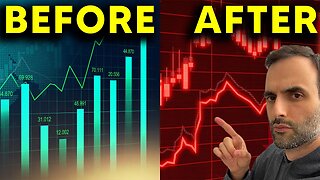Rates at 20 Year Highs as Economy Remains Resilient
Mortgage rates again bust through the 7% level, yet the housing market continues at a healthy rate of appreciation. Rates had risen above 7% briefly last month, came back down below 7%, but ended this week at 7.12%, and seems to continue the march up that started last year.
Yet, it seems to have no dramatic effect on the housing market.
How can that be?
Well, one clue is in the headlines in Mortgage News which was
"Rates Back to 20-Year Highs as Economy Remains Resilient." If the economy is resilient, rates can increase and housing prices continue their appreciation.
One important data point to watch is that mortgage rates are rising much faster than rates overall. While the Fed has made a strategic decision to raise interest rates, the rise in mortgage rates has been even more pronounced. Historically, the mortgage rates track along with the US 10-year Treasury Bill rates as mortgages get rewritten every 7 years on average, so the risk over time track fairly close.
When you look at this graph, you can see the numbers mostly overlapped except at the beginning of the pandemic and the rates now, where the 10-Year Treasury is at 5.5% and mortgage rates at over 7%, a difference of 1.5%. This documents that there is more demand for housing to finance homes than the broader segment of the economy, meaning there is stronger demand for housing than other purchases.
And, yet, despite the drama, the housing market has continued. The best barometer of the health of the market is the declining inventory, which shows that while fewer buyers are buying, also fewer sellers want to sell, keeping the market in equilibrium. Inventory remains at non-COVID lows.
So, desperate to find something to report, news sources report on the declining homebuyer sentiment. Fannie Mae reports "Homebuyer optimism continues to shrink." Sounds ominous. Then media sources copy their scary graph that makes it look like buyers are abandoning the market, crashing almost to the bottom of the graph.
But note that the bottom of the graph is not 0, but 60! Meaning 60% of consumers think it's a good time to buy.
Just putting the same data with a bottom of 50% makes the numbers look less dramatic.
But what does the graph really mean? It means that over 60% of consumers think it's a good time to buy. OK, but this is not consumers who might purchase hamburgers or socks, the average homebuyer only purchases every 10 years or so. And only 65% or so of Americans own homes, which means that 35% ALWAYS think it's a bad time to buy.
Another reason why mortgage rates are so high is that most Wall Street investors expect rates to come down at some point, perhaps driven by a recession next year. If rates do come down, then mortgages issued now will be paid off in 6 months or a year, so mortgage lenders are hesitant to invest capital in the inventory that they might lose, causing mortgage rates to be artificially high when compared to the broader economy. In fact, Fannie Mae says they expect mortgage rates to drop to 4.5% next year.
This is why we say "marry the house but date the rate." Savvy home buyers are exploring temporary and permanent loan buy-downs and 5-year adjustable rate mortgages. If you don't understand these products and are looking to buy them, reach out to me so we can create a strategy for you.
Another sign that in California we will never build enough homes to catch up with the pent-up demand, propping up housing prices: Our leaders continue to focus on the wrong thing.
Last week I shared how the California Association of Realtors (CAR) was suing cities to force housing policies they don't want, at best entering litigation that will take years and at worst spending money on lawyers rather than housing.
This week's stupid political action is the same CAR partnering with the University of California to focus on protecting "California Homes from Heat." Really, not building more homes to accommodate the population, not lowering the cost of housing so homebuying becomes affordable, but focusing on how to improve air conditioning in new building standards. You can't make this up. You can read the details here if you are interested.
--
Bill Gross, The LAProbate Expert
I am a real estate broker in Los Angeles, CA focused on probate real estate and the leader of a team of over 1,100 agents nationally probate experts.
Join my live stream weekly on probate real estate: www.ProbateWeekly.com
#probateattorney #probatesales #probaterealestate
-
 9:06
9:06
P.R.E.M TV
1 year agoMortgage Rates Back to 20 Year Highs as Economy Remains Resilient
1 -
 16:32
16:32
We Profit with Stock Curry
5 months agoWhy the Market is Rising, Despite the Economy Slowing
1.73K2 -
 0:46
0:46
Wealthion
1 year ago $0.02 earnedThe Economy Cannot Afford High Interest rates For Long
50 -
 14:26
14:26
The Money GPS
1 year ago $0.15 earnedEconomy Went From Stable To Recession in 1 Year | Here’s Why (You May Not Like It)
132 -
 5:37
5:37
The Last Capitalist in Chicago
9 months agoReal Estate Paradox: High interest rates but also high prices
180 -
 0:39
0:39
Wealthion
1 year ago $0.01 earnedHow To Stay Safe From Impending Recession
94 -
 0:25
0:25
Wealthion
1 year agoWhen The Rate Increases Will Take Effect in the Economy | David Rosenberg
55 -
 45:45
45:45
JasonHartman
1 year ago $0.01 earnedDoes High Inflation Mean It's a BAD Time to Invest?
119 -
 8:33
8:33
Wealthion
2 years ago7% Inflation + Rising Interest Rates = Tough Times Ahead For US Households | Adam Taggart
8 -
 0:50
0:50
Wealthion
1 year agoRatio-Based Indicators For The Economy?
62